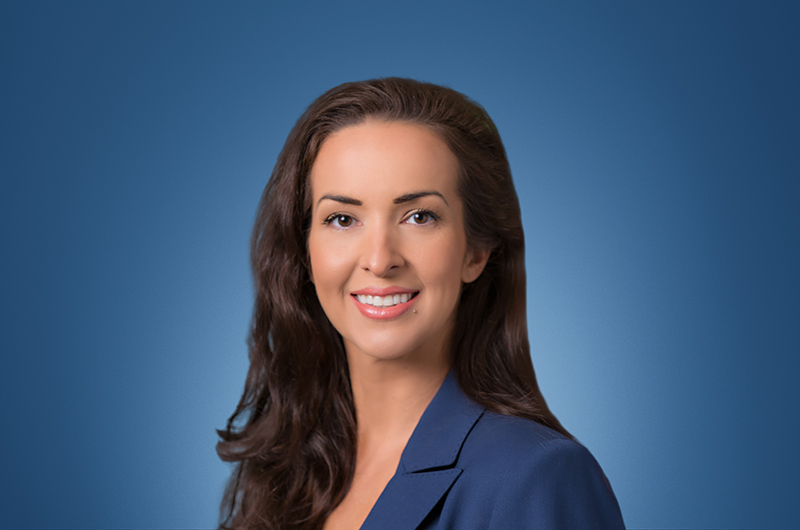The efficient resolution of civil litigation in time and money should be a concern of all attorneys and judges. The first time I met Rene Sigman was in a Galveston, Texas, courthouse where the judge had just asked lawyers for suggestions on how to streamline discovery for thousands of cases following Hurricane Ike in 2008. While Rene was not with our firm at that time, she was very vocal about what worked to get the evidence insurers did not want to turn over and how to do it quickly. I am proud that she is now a member of our firm and volunteers her time to help make the civil justice system better by working with The Institute for the Advancement of the American Legal System on catastrophe protocols to be followed in litigation. She worked on the most recent protocols involving the COVID-19 business interruption lawsuits.
Last May, I noted that Rene Sigman was on this working group in Rene Sigman Named to Working Group for Pandemic Litigation Discovery Protocols. I pointed out that:
Making discovery efficient and helping judges better understand the complex nature of insurance disaster litigation is something all attorneys in this field of law should strive to do. Access to justice for many less affluent policyholders requires streamlined but pointed discovery to issues which are at the heart of litigation. I am certain that this distinguished panel of attorneys and jurists will help make the current litigation faster, more relevant, and less costly for all.
The new protocols are linked here and the introduction states in part:
The COVID-19 coronavirus swept across the world in 2020, causing a global pandemic that dominated lives, economies, and businesses. By the end of 2020, the United States surpassed 2 million infections and more than 346,000 deaths. COVID-19 significantly impacted businesses as well, resulting in many businesses turning to their insurance companies to cover lost income and other pandemic-related losses. Simultaneously, insurers have been inundated with coverage claims despite being adamant that commercial property insurance policies were not intended to cover the COVID-19 pandemic. The extent to which these policies provide coverage—be it under business insurance interruption or civil authority clauses—is a question that will ultimately be resolved by the courts. For the increasing numbers of businesses and insurers who end up in court to resolve coverage disputes, the process may be protracted and complex. These complexities may be amplified by the impact of the pandemic on the court system, which has faced its own courthouse closures, postponement of jury trials, and prioritization of criminal matters. Even post-pandemic, courts will face backlogs of trials along with an influx of cases due to the economic impacts on both businesses and individuals.
Recognizing the need to efficiently process the influx of business interruption cases in both state and federal courts, IAALS, the Institute for the Advancement of the American Legal System, facilitated the development of its fourth set of discovery protocols—Initial Discovery Protocols for Business Interruption Insurance Litigation Arising From the COVID-19 Pandemic and Similar Public Health Threats (BI Insurance Protocols or Pandemic Protocols) for BI insurance disputes.
…
The working group was kept small to promote efficiency. Through virtual meetings, the working group developed a draft set of discovery protocols based on the Disaster Protocols. The draft was then reviewed by a second, broader group of experts, which helped gain additional input and buy-in for the project. The final product is the result of rigorous debate and compromise on both sides, inspired by the goal of improving the pretrial process in BI cases nationwide. The BI Insurance Protocols aim to reduce conflict and cost and to help businesses and insurers reach quick resolution during the pandemic, whether it be in settlement, motions practice, or trial.
The BI Insurance Protocols “apply to cases involving first-party insurance business interruption and related coverage claims, arising from the COVID-19 pandemic or similar public health threats from disease or other sources of infection or contamination.” The protocols create new categories of information exchange and replace initial disclosures with initial discovery specific to BI Insurance cases. This discovery is provided automatically by both sides within 45 days of the Insurer’s responsive pleading or motion.
…
The BI Insurance Protocols are designed to be implemented by trial judges, lawyers, and litigants in state and federal courts. As described in the BI Insurance Protocols, their intent is to “make it easier and faster for the parties and their counsel to: (1) exchange important information and documents early in the case; (2) frame the issues to be resolved; (3) value the claims for possible early resolution; and (4) plan for more efficient and targeted subsequent formal discovery, if needed.
Courts and litigants around the country will be dealing with COVID-19 insurance issues long after this pandemic has run its course. The goal of these protocols is to provide courts with an effective tool to streamline the critical early stage of litigation in order to reduce conflict and cost for both businesses and insurers alike.”
Having significant experience with numerous natural disasters where insurance disputes occurred, our firm successfully recommended, with input from other policyholder attorneys, discovery protocols that helped move along Hurricane Ike and Superstorm Sandy litigation. Many similarities can be found in the current protocols as well.
The insurance industry also has its advocates on this committee. I would not have a fair and balanced blog if I did not recognize long-time adversaries Steve Badger and Joyce Wang for their work on the committee.
Thought For The Day
In the real world, as lived and experienced by real people, the demand for human rights and dignity, the longing for liberty and justice and opportunity, the hatred of oppression and corruption and cruelty is reality.
—John McCain




